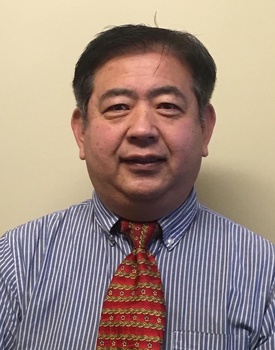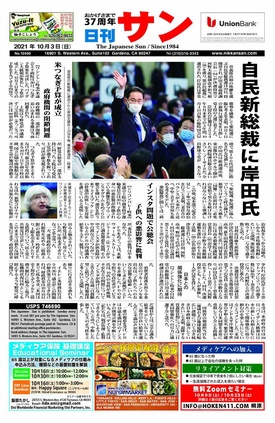The Nomo whirlwind for the Dodgers marks a turning point

When I first started living in Los Angeles in 1992, the Japanese newspaper Nikkan Sun was a paid publication. Later, it became free, and then with the appearance of Los Angeles Dodgers player Nomo, who created a tornado of a sensation, I remember the paper suddenly becoming a familiar presence in the mid-1990s, when getting information from the Internet was still not common. Current publisher Toyama Toshimasa, who took over the business from founder Makino Yasushi in 2012, spoke passionately about how Nomo was the savior of Nikkan Sun.
"The Nikkan Sun was launched in 1984, the year of the Los Angeles Olympics, and was sold for 25 cents for 10 years. It became free in 1994 when I joined the company, but it had been in the red for a long time and the plan was to stop publication at the end of the year if going free didn't work. However, that year the FIFA World Cup was held in Los Angeles, bringing attention to sports news, and in 1995 Nomo's joining the Dodgers gave momentum to this trend. At the time, it was thought that there was no way a Japanese player could make it in Major League Baseball, but Nomo's success completely overturned that view. With the yen also strong, at around 80 yen to the dollar, tourists from Japan flocked to Los Angeles in droves to see Nomo. The phones at the Nikkan Sun editorial department were constantly ringing off the hook with inquiries about Nomo's appearances."
The number of readers paying attention to Nomo's news increased dramatically, and the paper's popularity increased along with Nomo's success, Tomiyama recalls. After that, the paper continued to be published as a Japanese newspaper that delivers entertainment and community topics, with a focus on sports. The paper had such support from its core readers that I often heard people say, "If you're looking for a job in the food and beverage industry, you can be sure to advertise in the Nikkan Sun." The next turning point for the paper came in 2020, in the midst of the COVID-19 pandemic.
"Until then, we had mainly covered sports, thanks to the success of Ohtani of the Los Angeles Angels. However, at the time of the lockdown in March 2020, it became difficult to focus on sports, so we moved away from being a sports newspaper and changed our content to reporting on the current situation in the United States, including information on COVID-19. Furthermore, in November of the same year, we changed the cycle from being published five days a week to being published every Sunday. As a result, the circulation of each issue has doubled, and it is now at 40,000 copies."
We asked Tomiyama what the strategy behind changing to a weekly publication was, and whether it had had a positive impact on both readers and the publishers. "It's true that we had a large core readership that wanted to pick up the Daily Sun every day. But by reducing the publication frequency, we were able to double the number of copies per issue. This has increased our readership, and we feel that the effectiveness of advertising has improved dramatically. Furthermore, from the publisher's perspective, we were busy every day trying to get the paper out five days a week, and we didn't have the time to spare. By going weekly, we have more time and peace of mind, which is a major advantage."
We want to continue publishing until the Los Angeles Olympics.

When asked about the future of the paper, Tomiyama replied, "If you ask whether Japanese people living here will actually read the Los Angeles Times thoroughly, I don't think there are many who can read it that well. So I feel a sense of mission that we cannot allow the Daily Sun to disappear for people who need to get local information about America in Japanese. Also, even though we live in the internet age, as long as there are readers who still want to read the articles in their hands while distributing the digital version online, I want to continue publishing the newspaper."
Although Tomiyama himself was unaware of the plan, he joined the company in 1994 when there was a possibility that the publication would be discontinued within the year. After that, he took over the management of the Nikkan Sun, which survived the Nomo whirlwind, and for 10 years, shifted to a weekly publication amid the pandemic. Tomiyama's start as a working professional was actually in the tourism industry. "I got a job as a hotelier in Japan in 1981. After that, I moved to a travel agency and was stationed in the United States, working in Houston and San Francisco." Tomiyama, whose hobby was watching sports, moved to the Nikkan Sun, thinking, "I won't get in trouble for reading the newspaper at work (laughs)."
"The paper was first published in the year of the last Los Angeles Olympics. Therefore, I would like to continue publishing the paper no matter what until the next Olympics are held in Los Angeles in 2028. Looking back, I am grateful to the readers, young and old, who live in Los Angeles, as well as to Nomo-sama-sama." In 2028, the paper will be celebrating its 44th year since publication. As a reader, I can only hope that the paper will finish its run without any regrets until 2028.
*The Nikkan Sun official website
© 2021 Keiko Fukuda






